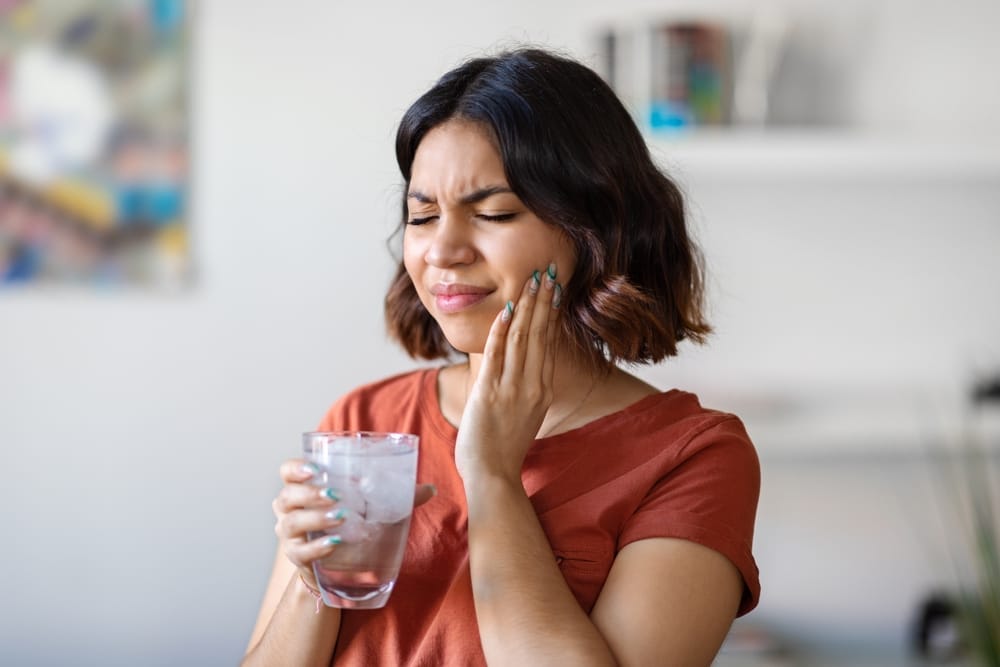 The human body is a complex network where each part plays a crucial role in maintaining overall well-being. Surprisingly, tooth pain can have far-reaching consequences, extending beyond the confines of the oral cavity to manifest as headaches. At Riverside Dental Group, we treat patients dealing with tooth pain causing headaches and other serious problems. Our team will help you get to the root of the problem and finally live without pain!
The human body is a complex network where each part plays a crucial role in maintaining overall well-being. Surprisingly, tooth pain can have far-reaching consequences, extending beyond the confines of the oral cavity to manifest as headaches. At Riverside Dental Group, we treat patients dealing with tooth pain causing headaches and other serious problems. Our team will help you get to the root of the problem and finally live without pain!
Understanding the Link: Tooth Pain and Headaches
Tooth pain causing headaches is not merely coincidental; it is often a result of interconnected nerve pathways and shared pain receptors. The trigeminal nerve, responsible for transmitting sensations from the face to the brain, plays a pivotal role in this connection. When dental issues such as cavities, infections, or gum disease arise, the trigeminal nerve can transmit signals to the brain, causing not only localized pain in the mouth but also referred pain in the form of headaches.
Signs and Symptoms to Watch For:
- Localized Tooth Pain:
- Persistent or throbbing tooth pain is often the initial indicator of dental problems. Pay attention to any discomfort or sensitivity that doesn’t subside with over-the-counter pain relievers.
- Headaches, Especially in the Temporal Region:
- Headaches originating from dental issues typically manifest in the temporal region, around the temples. These headaches may vary in intensity and could be accompanied by other symptoms like pulsating pain.
- Jaw Pain and Tension:
- Tension in the jaw, difficulty in chewing, or clicking sounds when opening the mouth can signal dental problems that may contribute to both tooth pain and headaches.
- Facial Swelling:
- Swelling in the face, particularly around the affected tooth or gum area, indicates inflammation or infection. This can contribute to both oral discomfort and headaches.
- Bad Breath and Unpleasant Taste:
- Chronic bad breath and a lingering unpleasant taste in the mouth may be signs of infection, highlighting the need for prompt dental attention to prevent further complications.
- Visual Disturbances and Light Sensitivity:
- In severe cases, dental issues causing headaches may be associated with visual disturbances and sensitivity to light. If you experience these symptoms, seek professional dental care immediately.
Preventive Measures to Avoid Serious Tooth Infections:
- Regular Dental Check-ups:
- Schedule routine dental check-ups to identify and address potential issues before they escalate. Early detection allows for less invasive treatments and prevents the development of serious infections.
- Maintain Good Oral Hygiene:
- Brushing twice daily, flossing, and using an antiseptic mouthwash help remove plaque and bacteria, reducing the risk of cavities and gum disease that can lead to tooth pain and headaches.
- Address Dental Issues Promptly:
- Don’t ignore dental pain or discomfort. Addressing problems like cavities, cracked teeth, or gum disease early on can prevent the spread of infection and minimize the likelihood of headaches.
- Watch Your Diet:
- Limit sugary and acidic foods that contribute to tooth decay. A balanced diet rich in vitamins and minerals supports overall oral health, reducing the risk of dental issues that can lead to headaches.
- Stay Hydrated:
- Drinking an adequate amount of water helps maintain saliva production, which plays a crucial role in preventing tooth decay. Proper hydration also supports overall health, reducing the likelihood of headaches.
- Use a Mouthguard:
- If you grind your teeth at night, a custom-fitted mouthguard can protect your teeth from excessive wear and prevent tension in the jaw muscles that may contribute to headaches.
- Manage Stress:
- Stress can contribute to teeth grinding and jaw clenching, exacerbating dental issues. Incorporate stress-management techniques such as meditation, yoga, or deep breathing exercises into your routine.
- Choose a Tooth-Friendly Lifestyle:
- Avoid habits that can harm your teeth, such as chewing on ice, using your teeth as tools, or excessive consumption of acidic beverages. These habits can lead to dental problems and, consequently, headaches.
Call today to Prevent Tooth Pain Headaches
Don’t wait! Ignoring dental issues not only compromises oral health but can also contribute to broader health concerns, including headaches. By paying attention to the signs and symptoms, practicing preventive measures, and seeking prompt dental care, individuals can break the cycle of tooth pain leading to headaches and mitigate the risk of serious tooth infections. Remember, a healthy smile goes hand in hand with overall well-being. Schedule an appointment at Riverside Dental Group in St. George, UT today and be on the road to a healthier you!



Leave a Reply